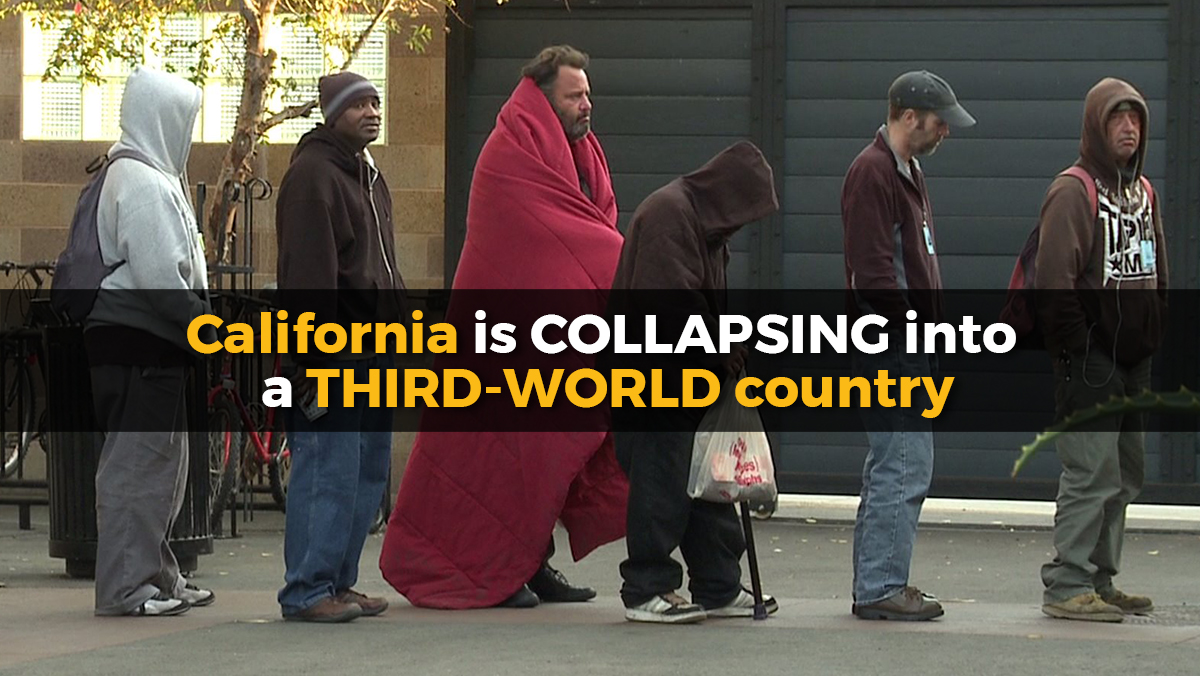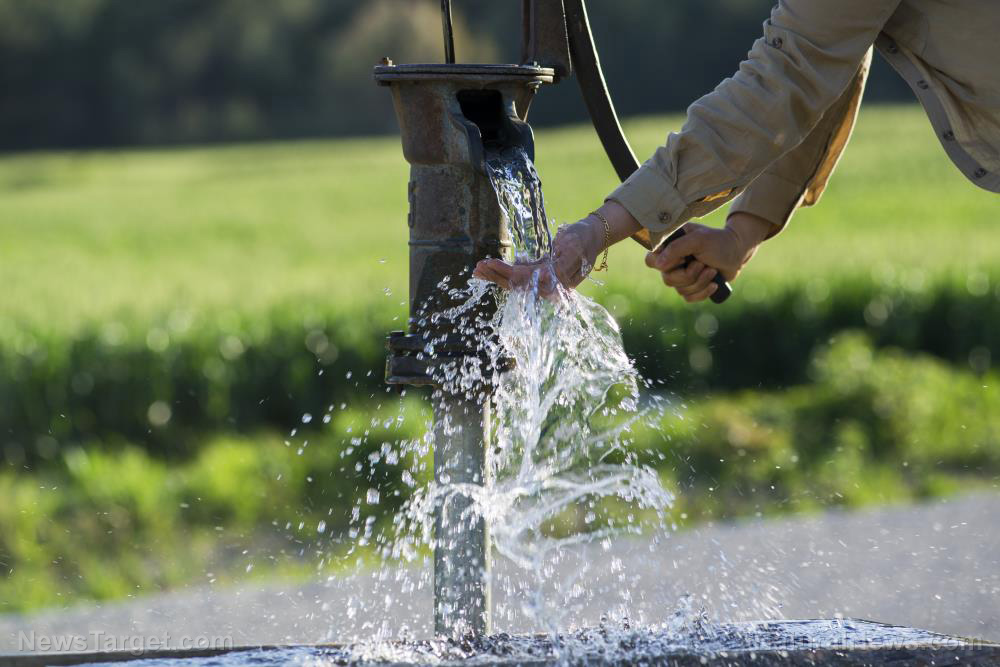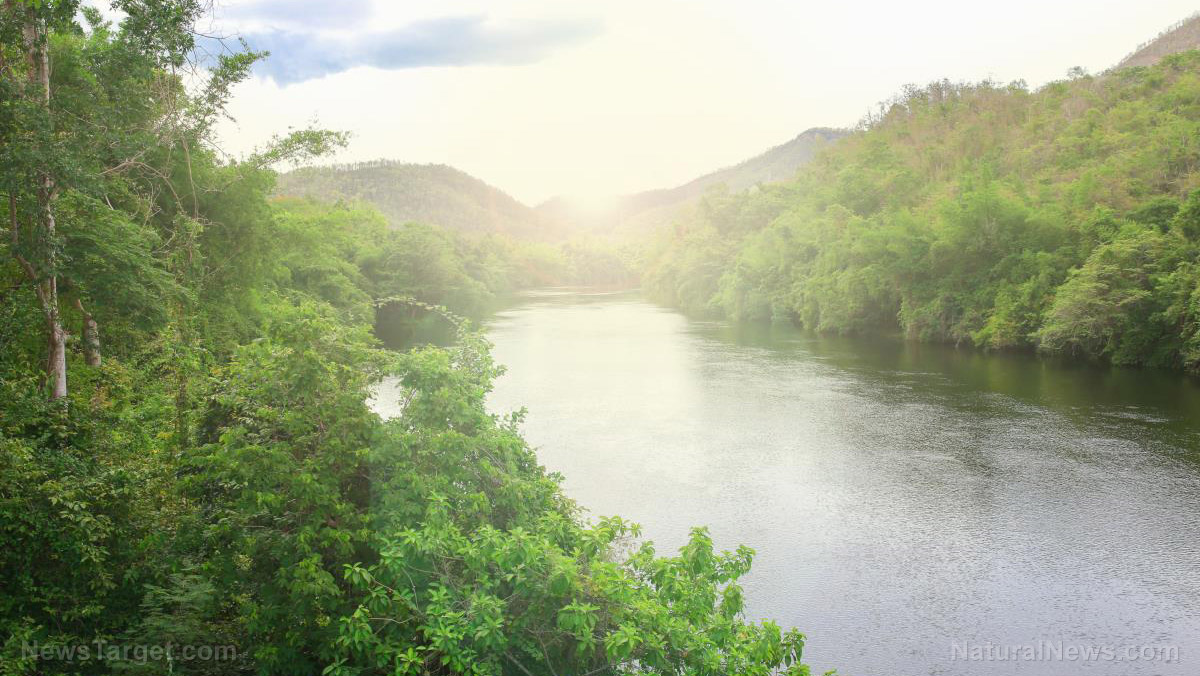Plastic pollution threatens the food supply from the world’s oceans
03/27/2019 / By Jhoanna Robinson

In a recent study that was conducted by researchers from Lund University in Sweden, it was revealed that fish are exposed to too much plastic. It has reached such a severity that tiny plastic particles find their way inside the fishes’ brains and negatively impact the fish’s behavioral patterns, inducing them to quit eating. Scientists also found that when animal plankton are exposed to large plastic particles, they die.
A gigantic amount of plastic is dumped into the sea on a yearly basis – so much so that it can fill five carrier bags for every foot of coastline on the planet, scientists said. Most of the trash that flows into the oceans all over the world comes from these five countries: China, Indonesia, the Philippines, Sri Lanka, and Vietnam.
The only industrialized country that contributes majorly to the general amount of plastic in the oceans – at No. 20 world-wide ranking, no less – is the United States. (Related: 75% of world’s fish have been wiped out by mankind…Collapse of marine ecosystems now imminent.)
According to the researchers, the federal governments of the U.S. and developed countries in Europe have structured waste collection systems, so the problem all boils down to citizens practicing the bad habit of throwing litter.
Plastic pollution has even reached the North Pole
Plastic chunks were discovered on remote frozen ice floes just 1,000 miles from the North Pole, with scientists noting that this is the farthest that plastic has been sighted in the Arctic regions. The plastic was found on ice floes at the location of between 77 degrees and 80 degrees north in the Arctic Ocean.
Sponsored solution from CWC Labs: This heavy metals test kit allows you to test almost anything for 20+ heavy metals and nutritive minerals, including lead, mercury, arsenic, cadmium, aluminum and more. You can test your own hair, vitamins, well water, garden soil, superfoods, pet hair, beverages and other samples (no blood or urine). ISO accredited laboratory using ICP-MS (mass spec) analysis with parts per billion sensitivity. Learn more here.
Tim Gordon of Exeter University in London and his group of experts from Hong Kong, Norway, the United Kingdom, and the U.S. went on an expedition to the North Pole and were flabbergasted to find blocks of polystyrene floating in the Arctic waters.
“For the 25 years I have been exploring the Arctic I have never seen such large and very visible items of rubbish. The blocks of polystyrene were just sitting on top of the ice,” Gordon said.
According to the scientists, a lot of plastic end up in the Arctic Ocean because there are many rivers that empty into the Arctic basin.
Scientists previously remarked that there are over five trillion pieces of plastic that are contaminating our oceans, with some claiming that the amount is so vast that should they get pieced together, they can form a permanent layer in the fossil record.
Humans manufacture around 300 million tons of plastic annually, with around half of that number being used just once before they are permanently junked.
Gordon’s team will also study how human-made noise pollution can negatively impact the Arctic and how ice loss in the region can affect how sound travels through the sea. This is an important subject matter as many aquatic animals, such as ringed seals, belunga wales, and walruses, depend on using sounds for navigation and communication while under the black depths of the oceans.
How polyester fibers go from your laundry to your plate
Your everyday clothes are chock-full of polyester fibers that are released from the fabric of your clothes when they get washed. Some of the fibers, which are too small to be caught by machine filters of washing machines, are directly proceed to the sewage systems, where they end up in seas.
The fish that live in the seas ingest these fibers, at the risk of choking themselves. The fish then get caught, sold in the market, and guess what? The fiber from your jacket is back in your house – only instead of being in your windbreaker, it’s inside the fish that’s on your plate.
Sources include:
Tagged Under: arctic ocean, Ecology, environment, fish, Junk, marine ecosystems, oceans and seas, Plastic, plastic trash, plastic waste, polyester fiber, polystyrene, wildlife
RECENT NEWS & ARTICLES
COPYRIGHT © 2017 COLLAPSE.NEWS
All content posted on this site is protected under Free Speech. Collapse.news is not responsible for content written by contributing authors. The information on this site is provided for educational and entertainment purposes only. It is not intended as a substitute for professional advice of any kind. Collapse.news assumes no responsibility for the use or misuse of this material. All trademarks, registered trademarks and service marks mentioned on this site are the property of their respective owners.




















